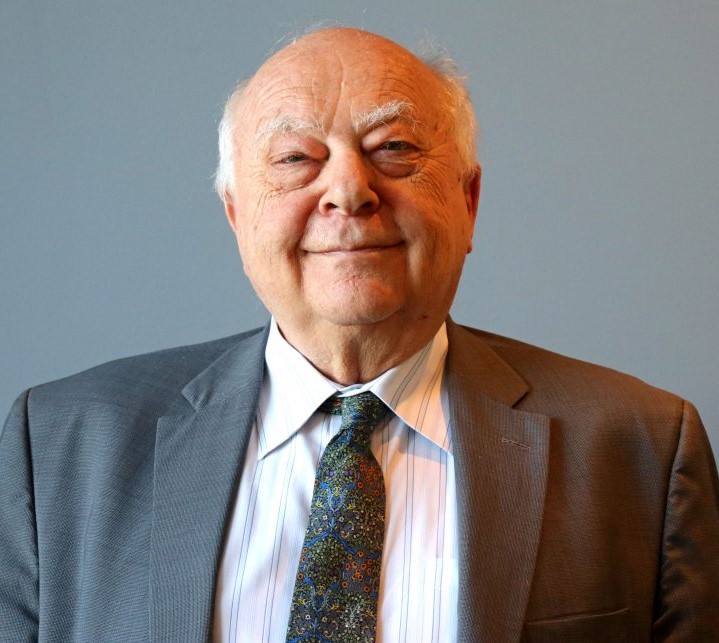Quebec’s new French-language legislation is a “massive abuse of civil rights” that threatens to turn the province into an “inspector state,” says Julius Grey, who is heading a legal team that will challenge Bill 96.
The veteran human rights lawyer denounced the legislation in an online forum organized by B’nai Brith Canada, with the participation of several cultural communities, including Muslims, who also oppose Bill 96. The law introduces the toughest measures to promote French since Bill 101 was adopted 45 years ago by the separatist Parti Québécois.
The sweeping law is “completely indefensible,” Grey said, starting with its erroneous premise that French is in jeopardy.
English-speaking Quebecers’ access to health care and the justice system in their language will be seriously compromised and for immigrants it will possibly denied, he said. But his strongest criticism was directed at the search and seizure authority the Office québécoise de la langue française (OQLF) has been granted.
“The OQLF is going to get powers that the police do not have in investigating murders,” he said. “Obviously, speaking English here is worse than murder. They (police) can’t just walk in and look at your computers…at your documents. But here the OQLF will be able to do it.
“Quebec is certainly not a police state, but it’s quickly become an inspector state and, in some ways, an inspector state can be just as invasive and just as dangerous.”
Grey was referring to inspections that can be conducted of businesses and other groups without a warrant, in response to a complaint that they are not using French adequately.
He also deplored the law’s classifying “old and new anglophones” to decide their respective linguistic rights. “This is something democracies don’t do…This is a terribly unfair, unjust, anti-immigrant law. Absolutely ridiculous,” said Grey, who emigrated as a child from Poland.
Another lawyer and McGill University professor, Pearl Eliadis, contended that both Bill 21 and 96 violate international human rights law, as well as the Canadian and Quebec rights charters, which they override by invoking the notwithstanding clause.
The by-invitation videoconference, which had almost 160 callers, follows on B’nai Brith’s scathing denunciation of Bill 96 in June, soon after it became law. The organization asserted that this legislation, along with Bill 21, the secularism law passed three years ago, could spur an exodus of Jews, especially younger ones, like that which began after Bill 101.
B’nai Brith CEO Michael Mostyn repeated that concern. “These Quebec laws are sending a negative message to our community and many others.” He singled out the limiting of government services in English, including health care, as “a recipe for disaster,” in particular, for the elderly and immigrants.
Mark Groysberg, president of the United Community of Russian-Speaking Jews of Quebec, said many immigrants from the former Soviet Union who are aged and don’t speak French are fearful they will not get health care in a language they understand.
The national director of B’nai Brith’s League for Human Rights, Marvin Rotrand, who chaired the event, said other minority communities have contacted him wondering if a collective response can be made.
For more than two hours, a lengthy list of speakers aired their views, including fears that the young will leave and immigrants won’t come.
“A strict reading of the bill is chilling,” Rotrand said. “The reality will play out as it is implemented (over three years). If the government finds the population will not go along with the law, it will have to engage with us and may attenuate it somewhat. We have to work together.”
Joe Ortona, chair of the English Montreal School Board, which also plans to fight Bill 96 in court, said, “I can say that we have never had a government that is so hostile toward the English-speaking community, linguistic minorities, religious minorities, minorities in general.” The board is also challenging Bill 21, now before the Quebec Court of Appeal.
Outgoing Liberal D’Arcy McGee MNA David Birnbaum, whose party voted against Bill 96, said, “I’ve never seen such a divisive, small-minded, ill-conceived attack on all of us…a retrograde vision of how to promote our common language, French.” Anglophones should be seen as “allies not enemies,” he said.
However, Birnbaum stressed that Quebec is still an “inclusive and welcoming” society. “I have no patience for people in our Jewish community who are telling their kids to leave,” he said.
Lawyer Greg Bordan was less optimistic about the community’s future. He, with B’nai Brith, tried unsuccessfully to persuade the government to make a minor amendment to the bill that would maintain the possibility for English-speaking rabbis with temporary resident status to send their children to English schools for up to six years.
“Over time this will have an enormous impact on the English Jewish community,” he said, because it will make it even more difficult to attract qualified rabbis here.
Rotrand added that he is already hearing that candidates are hesitating to accept positions in Montreal. The community is competing today with synagogues throughout North America for a limited pool of rabbis, he said.







